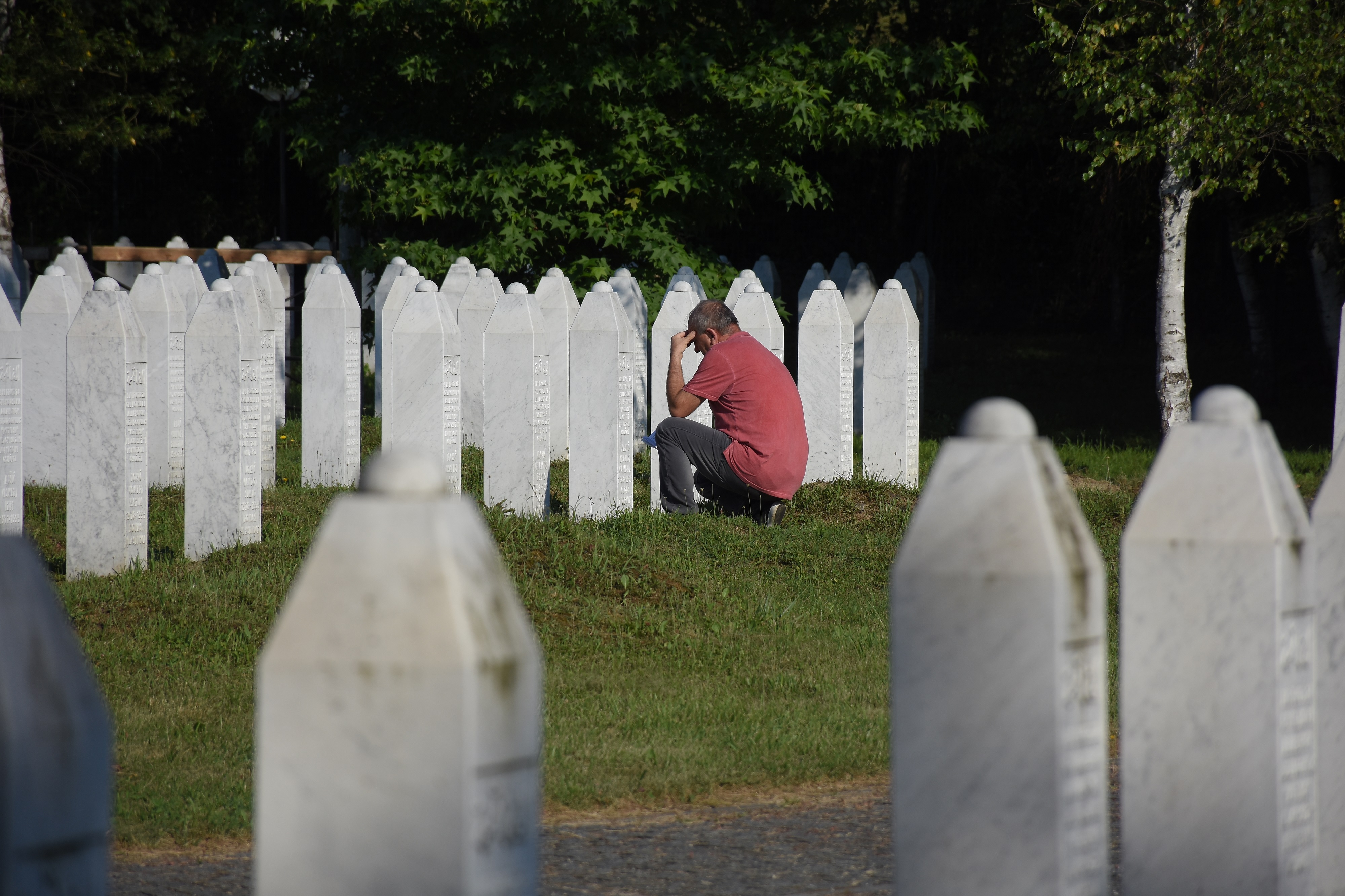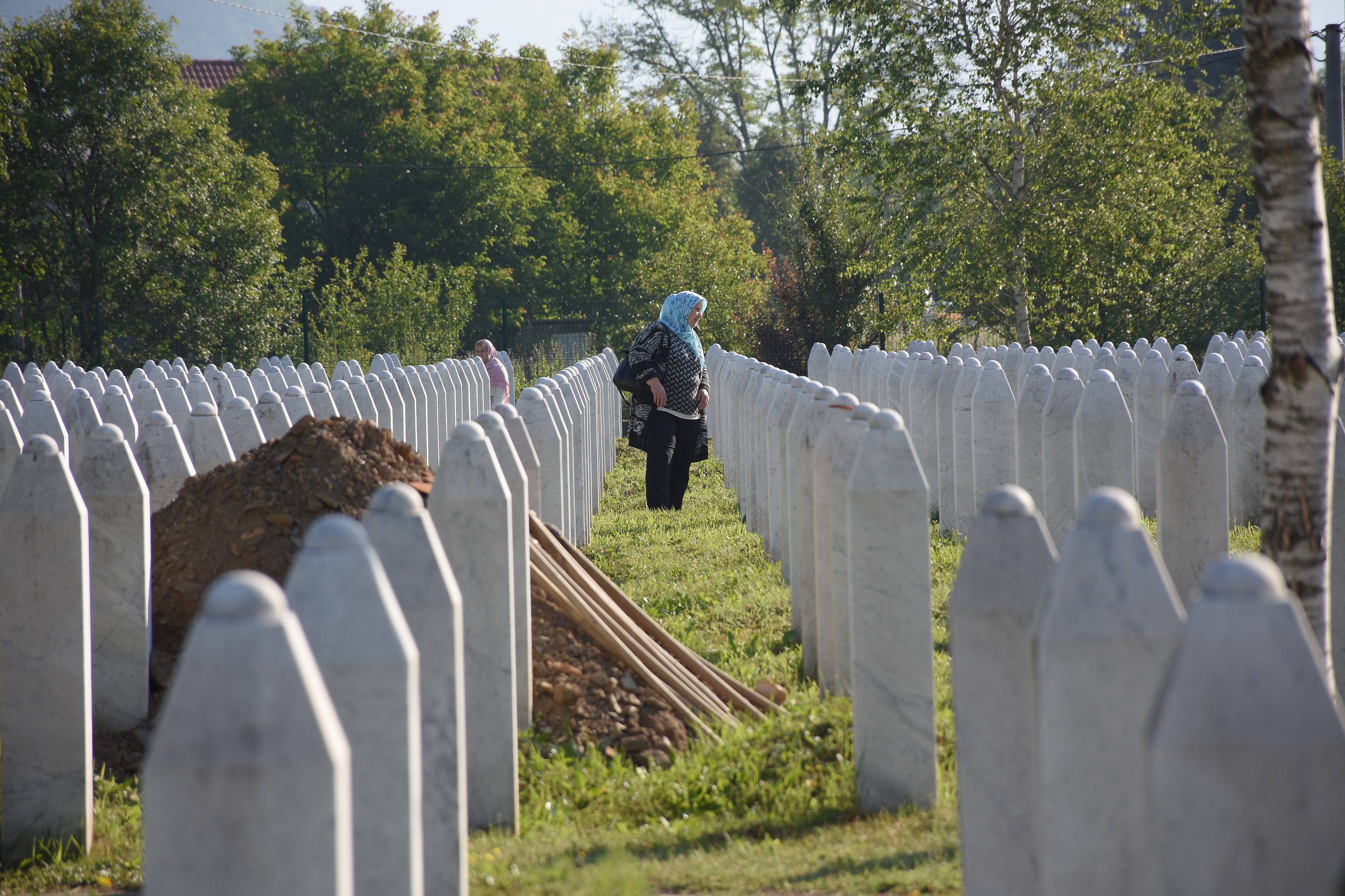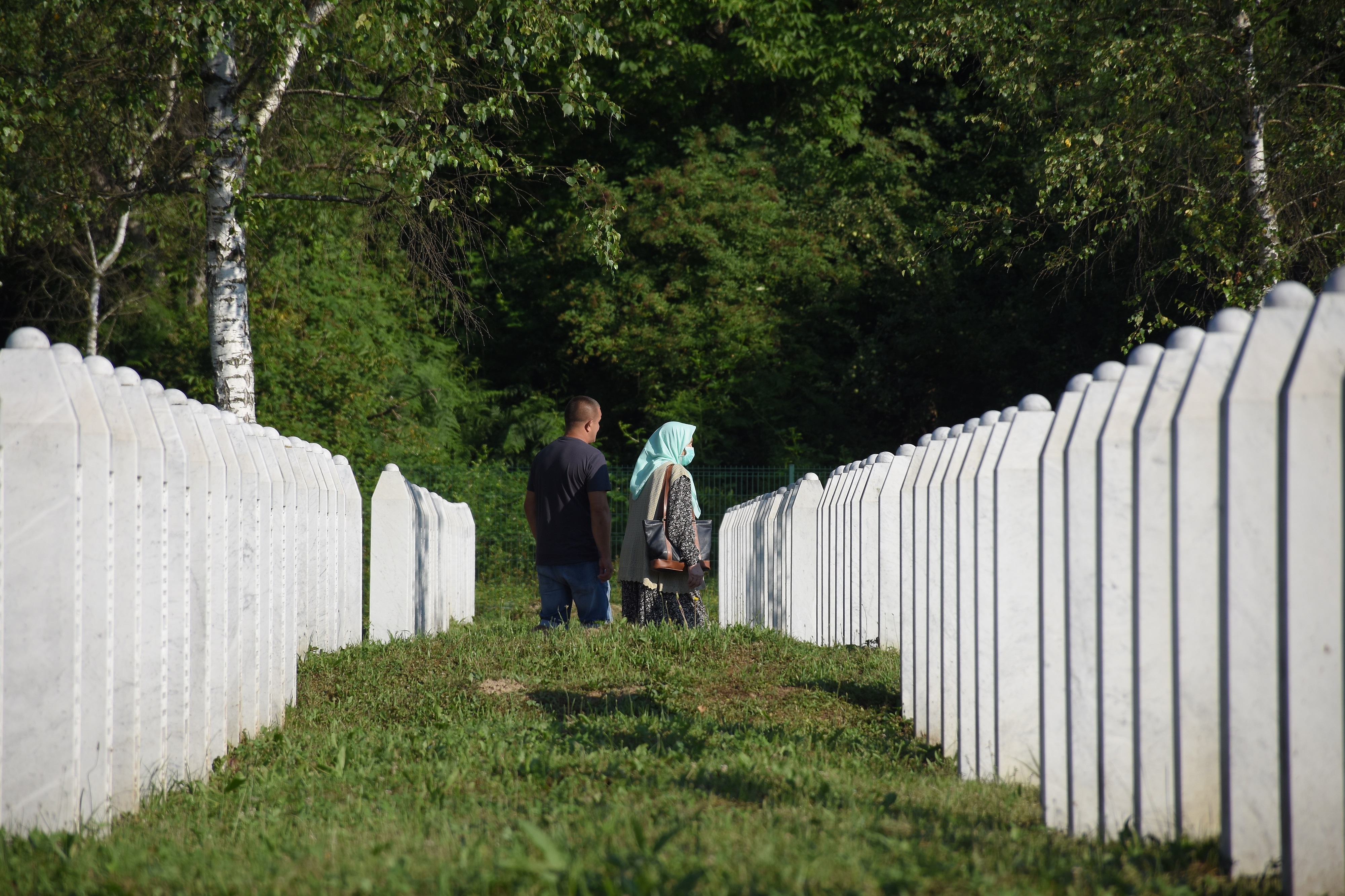Remains of nine victims laid to rest at 25th anniversary of Srebrenica genocide

Srebrenica genocide Memorial Centre held a prayer for the nine victims whose remains were found over the past 25 years – some complete, some incomplete.
Following the prayer, family members and a small number of Peace March participants heard the Srebrenica Inferno performance and read verses from the Qur'an.
The prayer was led by the Bosnian Grand Mufti Husein Kavazovic who recalled that it has been 25 years since the genocide in this east Bosnian town but that consequences of that atrocity are still fresh and felt by everyone in the country and the world.
He noted that all good people should help Srebrenice not by remaining on the sidelines, but by speaking out and explaining the evil that happened there.
“Srebrenica should be a message of remembrance not just of the genocide, but of everything that happened here in the 90s,” Kavazovic said.
He expressed hope that everyone will find a way to overcome the past and find a path to reconciliation, and that the victims will always have the final word, prayer and justice.
So far, 6,643 genocide victims have been buried in the Srebrenica genocide Memorial Centre.
During the 1992-1995 Bosnian war for independence from the former Yugoslavia, the country lost over 100,000 people, over 8,000 of which were lost in July 1995 in Srebrenica, when Bosnian Serb forces, which received financial and logistical support both from Serbian authorities and individuals during the war, overrun the then UN-protected zone of Srebrenica.
Their bodies were subsequently buried in primary, secondary and even tertiary mass graves in an attempt to hide the crimes and make identification of victims impossible. Thanks to state of the art DNA labs, all the bodies that were buried at the Memorial Centre were positively identified.
The bodies of victims that were not identified are still held in morgues waiting for their relatives to give their DNA samples. unfortunately, many have died before their loved ones were exhumated making it impossible to identify a small number of skeletal remains.
The International Criminal Tribunal (ICTY) for the Former Yugoslavia and the International Court of Justice later ruled that the massacre was an act of genocide.
International and regional courts have sentenced 45 people for what happened in Srebrenica to a total of more than 700 years behind bars.
Those who the ICTY sentenced to life imprisonment are Ljubisa Beara, Zdravko Tolimir, and Vujadin Popovic. But the most well-known alleged masterminds of what happened in Srebrenica are former Bosnian Serb politician Radovan Karadzic and ex Bosnian Serb general Ratko Mladic, and both have been sentenced for it but have appealed.



Kakvo je tvoje mišljenje o ovome?
Učestvuj u diskusiji ili pročitaj komentare





 Srbija
Srbija
 Hrvatska
Hrvatska
 Slovenija
Slovenija











